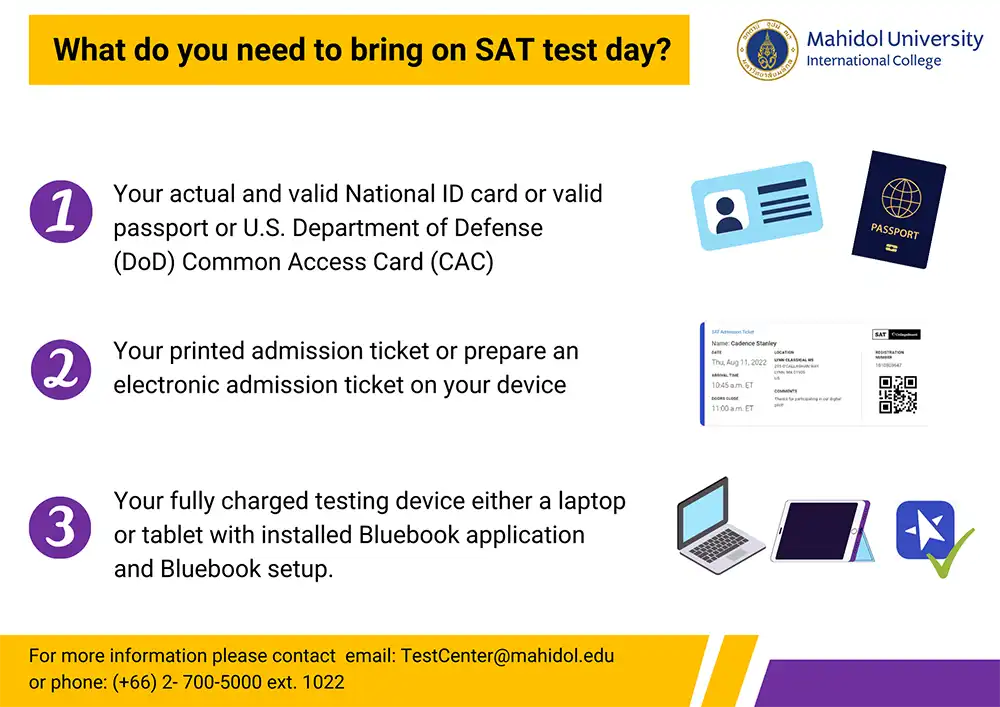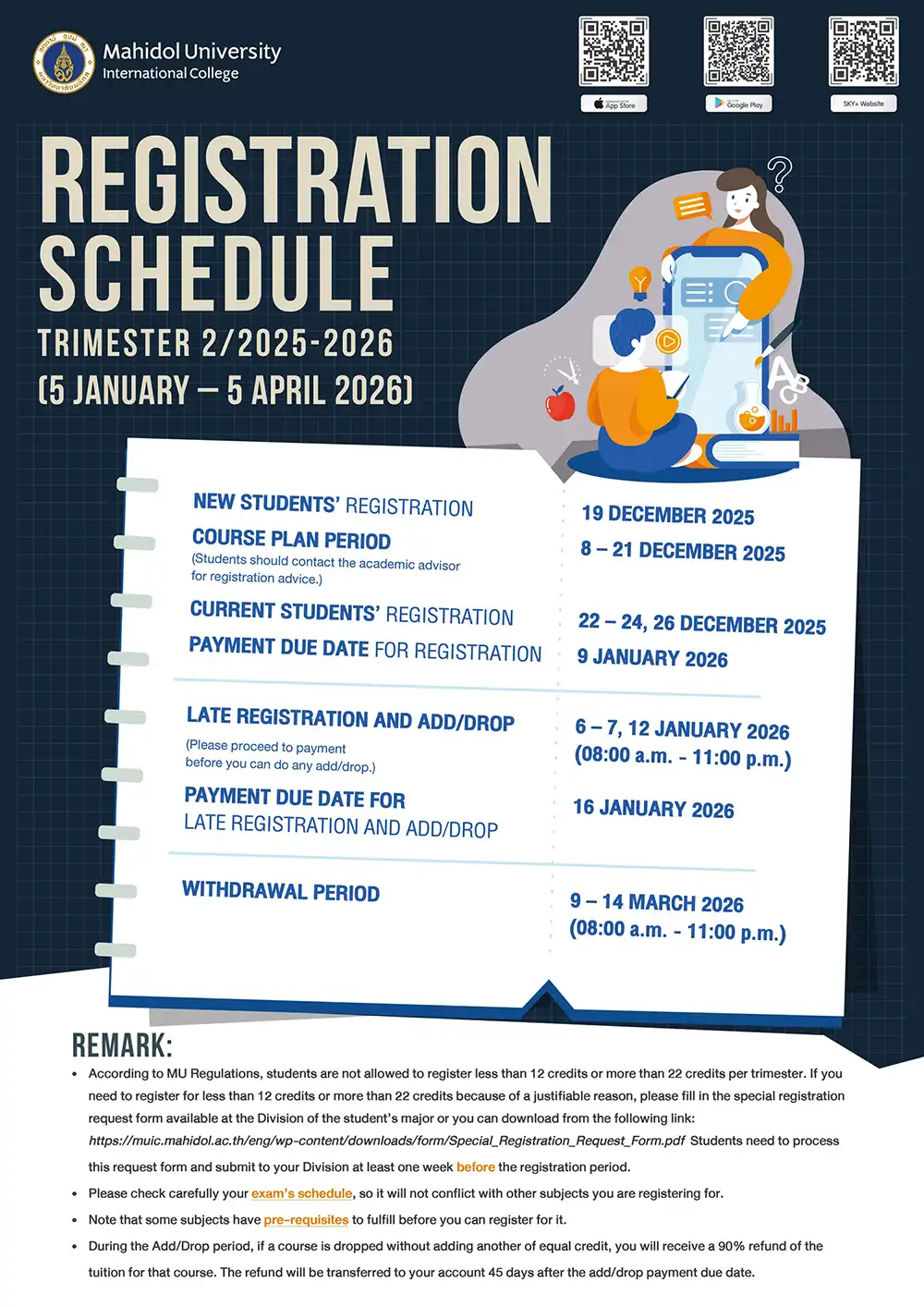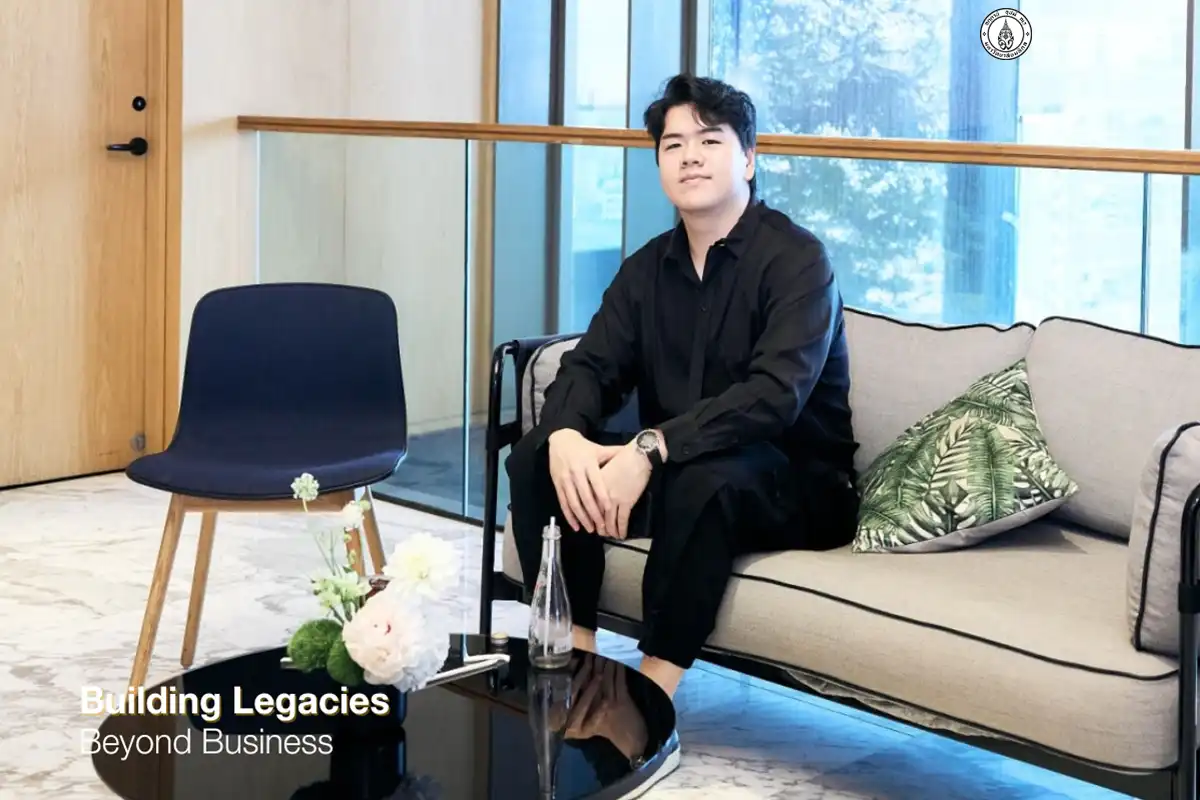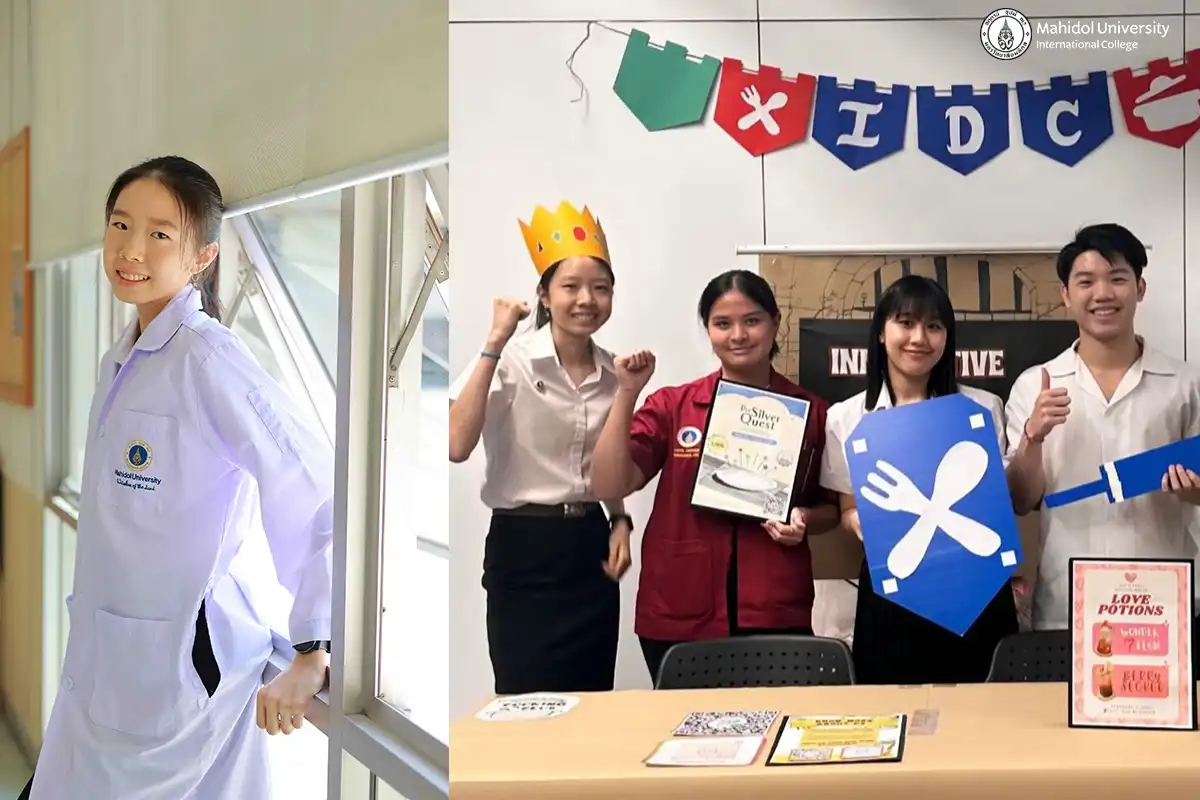Please choose a news and article category.
Recent MUIC Events
FAST-TRACK IELTS # 6
Announcement for SAT Test Takers on Saturday 6 December, 2025
Registration Announcement for Trimester 2/2025-2026
MUIC 360 Degrees
When AI Becomes Your Study Buddy: How Two MUIC Students Are Redefining Learning in the Age of Technology
October 24, 2025 2025-10-24 9:28When AI Becomes Your Study Buddy: How Two MUIC Students Are Redefining Learning in the Age of Technology
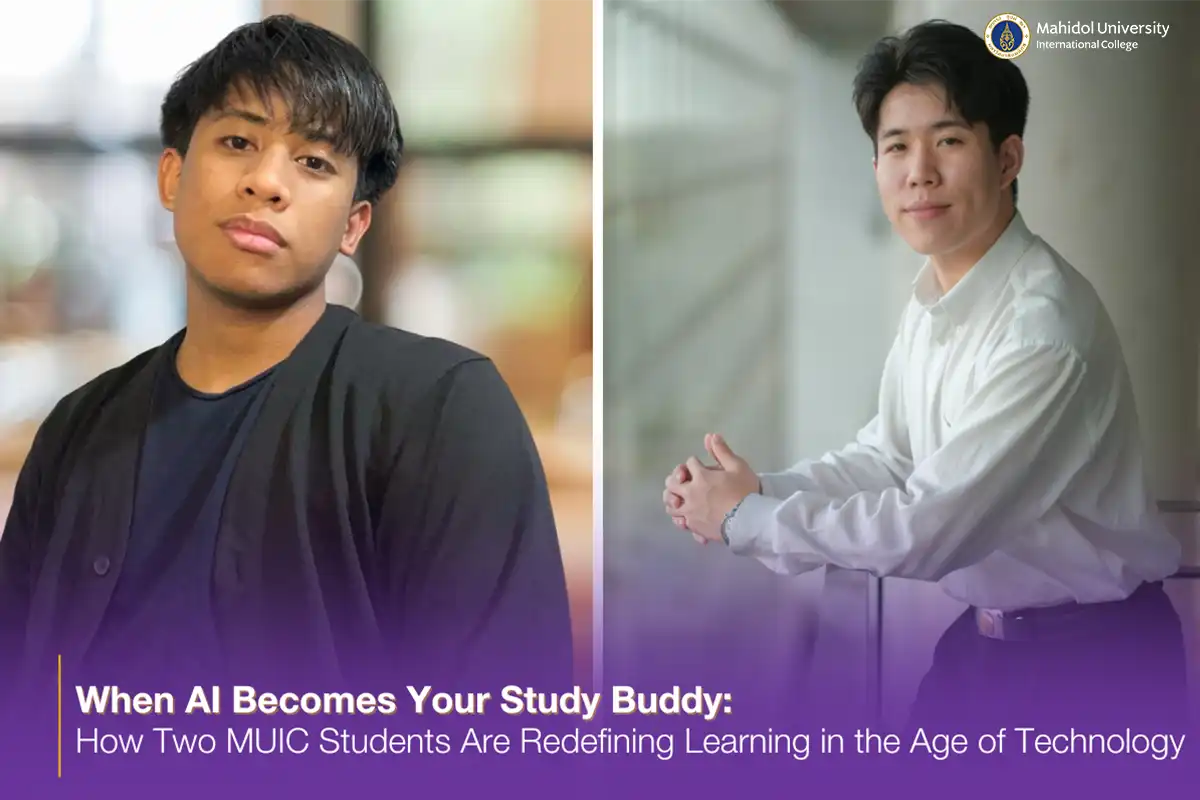
When AI Becomes Your Study Buddy: How Two MUIC Students Are Redefining Learning in the Age of Technology
Artificial Intelligence (AI) is no longer just a buzzword — it’s becoming a quiet presence in classrooms, dorm rooms, and study sessions. For today’s university students, AI can be both a blessing and a challenge: a shortcut or a study companion, depending on how you use it.
At Mahidol University International College (MUIC), two students shared how AI has changed the way they learn — and how they’re learning to use it wisely.
Meet Mr. Nattapong Weschayanwiwat, a Computer Engineering student, and Mr. Adlai Nethaneel Selorio, from the Intercultural Studies and Languages Program. Both admit they were curious — and a little skeptical — when they first heard about AI tools like ChatGPT.
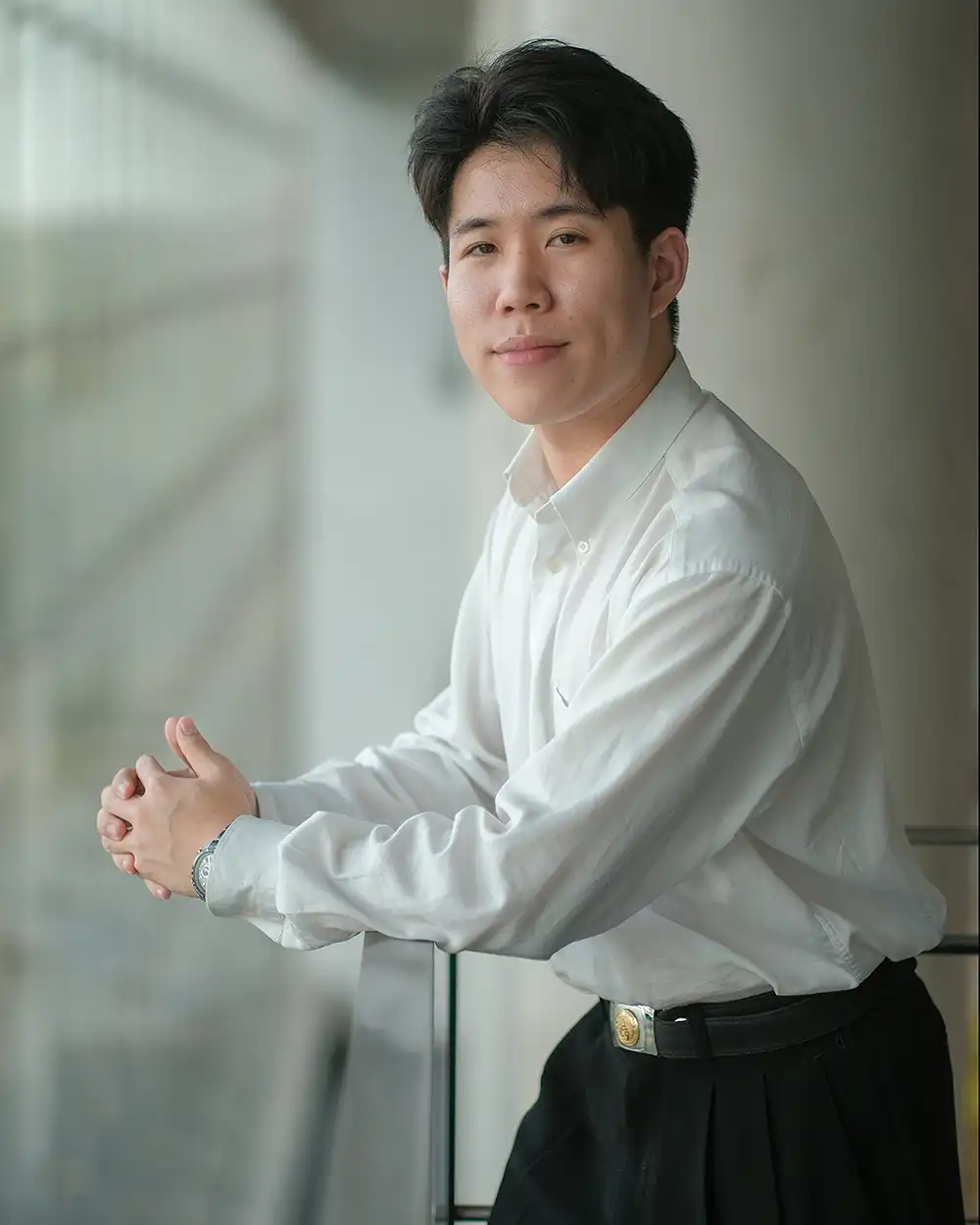
“AI should be a guide, not a replacement for your own effort.” - Nattapong

“I would never use it to think for me or to answer my homework, as I don’t believe that’s ethical.” - Adlai
First Encounters: Between Curiosity and Caution
“My first encounter with AI in my studies was about a year ago, when I tried using ChatGPT to summarize some of my notes,” Adlai recalled. “I had never been the biggest fan of AI because I’d heard many people say it often spreads misinformation. However, I decided to give it a try since I was using my own notes and could easily spot any mistakes. I was excited to see what kind of output it would give me—whether it would be useful or not.”
For Nattapong, the experience was eye-opening. “The first time I used AI was when I had to research climate change. ChatGPT gave me a well-organized summary in bullet points that made the topic much easier to understand,” he said. “Before that, I used to spend hours searching through websites and articles just to get the key points. But with AI, I found clear, reliable information in seconds. That moment completely changed how I approach studying and research.”
From Tool to Tutor
Since those first experiments, both students have found AI to be a valuable companion in their academic journeys.
“I’ve used generative AI a lot since coming to MUIC,” said Nattapong. “As a Computer Engineering student, I have to deal with a lot of math and programming, which can get really overwhelming. At first, I just used AI to help with assignments, but over time, I started learning from it too. Whenever I got stuck, AI could break things down in a really simple way—like having a personal tutor available anytime. It has honestly made studying way less stressful and a lot more enjoyable.”
Adlai, on the other hand, uses AI more for comprehension and reflection. “I use it to summarize my notes and occasionally to do further research on topics I want to understand better,” he said. “It helps me skip the time-consuming parts of studying while keeping the parts that require actual thinking. For example, it can rewrite my notes in a way that’s easier to understand and more concise, which helps me focus on the key ideas more effectively.”
AI in the Classroom: Boundaries and Ethics
But what do their teachers think? How does MUIC prepare students to use AI responsibly?
“Yes, some ajarns at MUIC set clear boundaries,” said Nattapong. “They always remind us that AI is just a tool to support learning, not something to depend on entirely. We’re not allowed to copy or submit AI-generated answers without understanding or modifying them. The focus is still on learning and critical thinking. At the same time, some ajarns encourage us to use AI to brainstorm, check grammar, or explore different perspectives. They even show us how to write better prompts so we can use AI more effectively and ethically.”
Adlai’s experience, however, differs. “Most of the ajarns I’ve had are quite anti-AI,” he admitted. “They don’t allow its use at all. Some do allow limited use, but usually only for tasks like summarizing notes. They generally discourage relying on it for assignments or critical thinking tasks.”
Ethics Over Ease
Despite their enthusiasm for AI’s benefits, both students recognize the importance of using it responsibly.
“I believe AI is a powerful tool, but it should be used responsibly,” said Nattapong. “Personally, I use AI to help me understand difficult topics, brainstorm ideas, and double-check my work—not to do the work for me. It’s important to learn and grow through the process, not just rely on shortcuts. AI should be a guide, not a replacement for your own effort.”
Adlai shares a similar stance. “I would only use AI to do research and to summarize or rewrite my own notes,” he said. “I would never use it to think for me or to answer my homework, as I don’t believe that’s ethical.”
A Future Shaped by Choice
Both students see AI not as an academic threat but as a challenge — one that asks students to balance curiosity with conscience. In a world where technology is evolving faster than ever, they believe the real test for this generation is not how well we use AI, but how wisely we choose to.
